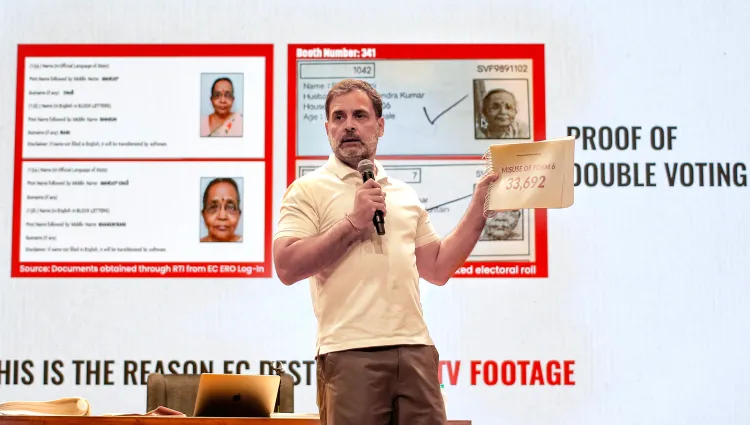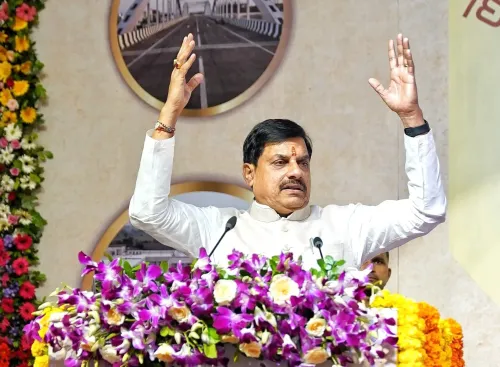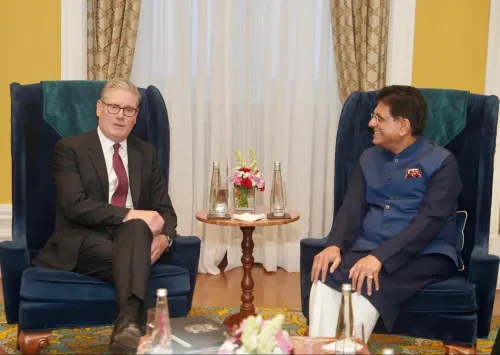Are Rahul's Claims Validating ECI’s SIR Objectives?

Synopsis
Key Takeaways
- Rahul Gandhi's claims raise significant electoral integrity concerns.
- The ECI's SIR initiative addresses many issues highlighted by Gandhi.
- Political analysts view Gandhi's accusations as a potential endorsement of the SIR campaign.
- Transparency in voter data remains a critical issue.
- Both parties must prioritize electoral integrity and transparency.
New Delhi, Aug 7 (NationPress) Congress leader Rahul Gandhi on Thursday presented what he claimed was solid evidence of the Election Commission of India’s (ECI) purported collusion with the BJP to manipulate voter rolls and “steal votes” during the Lok Sabha elections in Karnataka.
However, his emphasis on widespread irregularities in the voter list is now being interpreted as an unintentional endorsement of the ECI’s current Special Intensive Revision (SIR) of electoral rolls in Bihar—an initiative aimed at ensuring that no eligible voter is excluded and that no ineligible voter is included.
Political analysts observe that the issues Gandhi raised in Karnataka are exactly what the SIR campaign intends to address.
BJP MP Nishikant Dubey’s commentary on X frames Rahul Gandhi’s press conference as not just a political blunder but a contradiction.
He humorously describes Gandhi’s allegations as a “fizzled nuclear test” while pointing out that Congress, perhaps unknowingly, has backed the Election Commission’s SIR initiative in Bihar. This campaign aims to cleanse the voter rolls by eliminating duplicates, ineligible, or displaced voters—concerns that Gandhi himself claims are compromising the democratic process.
“I saw Rahul Gandhi’s “nuclear bomb” press conference fizzle out, but the upside is that Congress has strongly endorsed the ECI’s SIR (Special Intensive Revision) campaign in Bihar today. After all, the Election Commission is actively addressing issues like Bangladeshi votes, missing voters, displaced voters, and duplicate entries, all to clean up the voter list,” Dubey remarked on X.
In light of this situation, the BJP and numerous analysts argue that Gandhi’s criticism inadvertently supports the very initiatives aimed at resolving the discrepancies he has highlighted.
The crux of Gandhi’s complaint revolves around the opacity and inaccessibility of voter data. Experts suggest that the issue he raised touches upon the broader topic of institutional access and the ability to independently verify electoral rolls.
He has asserted that the “lack of digital transparency” is intentional, designed to hinder verification efforts by opposition parties.
The Congress party’s manual audit, which took six months for just two constituencies, illustrates this challenge.
Nevertheless, the ECI has consistently maintained that the SIR drive is aimed at enhancing the integrity of the voter list—ensuring no eligible voter is omitted and no ineligible voter is included.
Meanwhile, critics contend that Gandhi’s assertions, rather than undermining the process, underscore the necessity and urgency of such cleansing initiatives. If discrepancies do exist, then the SIR—supported by all parties—should be viewed as a path toward resolution, not collusion.









